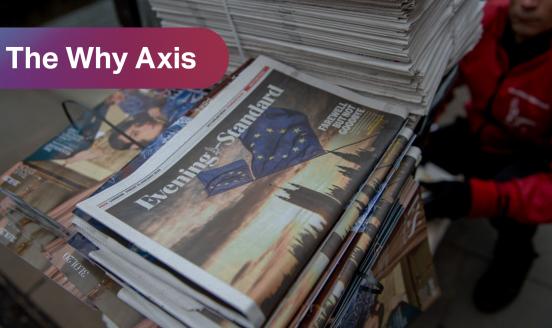Europe must change course on banks
The Eurozone crisis keeps evolving along multiple dimensions. On the sovereign debt front, no deal is yet in sight on Greece’s debt restructuring, and Italy and Spain face major refinancing needs in early 2012. On the institutional reform front, the summit on December 9 fell short of delivering a true fiscal union, and tensions between the Eurozone and the UK have been brought to boiling point. On the growth front, a possible deep and prolonged recession looms.
As during previous episodes, however, the banking system is a crucial piece of the puzzle and epitomizes many of the contradictions of Europe’s experiment in monetary union. Almost continuously since 2007 that system has exhibited worrying gaps in risk management, compounded by massive supervisory failures in some countries. In the past two years, deteriorating sovereign creditworthiness has increased the system’s fragility. The combination of member states’ guarantees on domestic banks, and those banks’ outsized holdings of home-country sovereign debt in periphery countries, has accelerated the feedback loop between sovereign credit and bank funding conditions. The result is fragmentation: whether a euro held in a Greek bank is equivalent to a euro in a German bank is ever more in doubt. This could produce a slow-moving death spiral for a currency union.
Instead of fighting this trend, the recapitalization plan agreed on October 27 has reinforced it. More guarantees on banks are introduced at the national level, none at the European one. Moreover, when raising the minimum capital ratio to 9 percent, leaders decided that its assessment would rest on fair value (or mark-to-market) measurement of each bank’s portfolio of sovereign debt. The fair-value principle is sound for financial disclosure purposes. But it is dangerously pro-cyclical when applied to regulatory capital calculations, especially when extended to debt that is held to maturity – a radical move towards “full fair value” that accounting standard-setters have never dared to embrace. This is a recipe for massive credit rationing and misallocation, for which there is more and more anecdotal evidence.
The situation should be corrected before it runs out of control. The European Central Bank has introduced unprecedented liquidity support, but this step cannot correct the core problem of the sovereign-banking nexus. Both sides of the equation should be tackled. On the one hand, Eurozone-wide financial mechanisms should at least partly replace national backstops, arguably focusing on retail deposits for which the public guarantee is most harmonized and least discretionary or controversial. Such a move would go a long way towards preventing disastrous retail bank runs. On the other hand, leaders should work toward a partial substitution of national debt held by banks with common Eurozone debt, depending on the advancement of discussions on the fiscal front. Doing so would help reduce the current unreasonable home bias in the balance sheets of banks in periphery countries, especially Spain and Italy. These interventions could be overseen by an ad hoc entity dedicated to Eurozone bank restructuring, by delegation of individual member states.
Of course, such actions would require a political commitment that is currently nowhere to be seen. But there can be no sustainable monetary union without an integrated banking system, which would require an integrated policy framework in compliance with the subsidiarity principle. Two conditions add formidable hurdles on the path to a solution. First, as in fiscal matters, the difficult decisions to be made require proper accountability to Eurozone citizens, at least in the medium term. Establishing such accountability may entail reform and empowerment of the European Parliament, or the creation of an ad hoc chamber that would aggregate delegations from national parliaments, or both. Second, action in the Eurozone must be articulated with the existing instruments of the 27-member European Union, including the recently created European Banking Authority (EBA), which is located in London. This is made more difficult by the growing political distance between the UK and the Eurozone, widened after Prime Minister David Cameron’s veto at the December 9 summit. The pragmatic option is a coexistence of Eurozone and EU instruments, at least for some time, but it will add complexity and friction.
The political affirmation of the integrity of the Eurozone banking system does not require new treaties. But beyond the inherent aspect of financial solidarity, it would run against major political resistance, not least from individual banks that fear the loss of national privileges or protections. However, the creation of a “banking union,” parallel to the fiscal union now advocated by German Chancellor Angela Merkel, would not mean the end of all national and local specificities. In the United States, more than a century has separated the creation of a national banking charter (1863) from the achievement of a true national banking market. Interdependences between banking and political structures at the national and local level will remain. But a Eurozone-level banking policy framework that would transcend them is a necessary condition for the survival of the monetary union.



